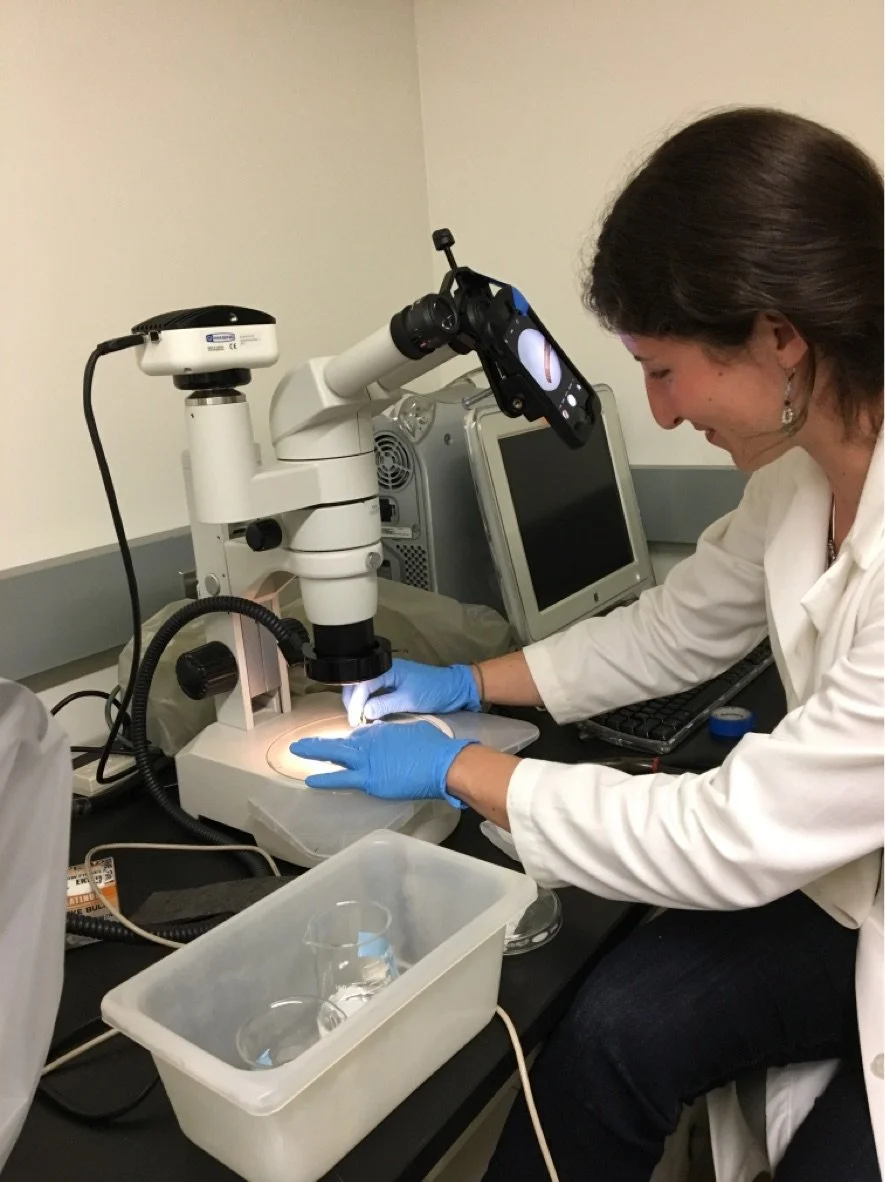Breaking Down Plastic Pollution and the Challenges with Waste Management
My research first centered on this question:
Can we engineer a solution to plastic pollution?
My focus: mealworms. I set out to understand how mealworms—the larval form of a beetle—can eat and fully degrade traditional plastics, in a matter of hours - not centuries. I discovered that the bacteria in their gut built systems to grow plastic degrading bacteria!
This process, called enzymatic biodegradation, is similar to composting where naturally occurring bacteria break down waste, turning it into natural organic matter.
While this topic was fascinating, and remains an active area of research, I came to realize we were never going to move the needle on the plastic crisis with research or engineering alone: we need systemic policy change.
After completing my PhD, I transitioned my focus to work on science policy.
Publications
Brandon, A.M., et al. "Charting success for the Plastics Treaty." One Earth (2023).
Brandon, A.M., et al. "Enhanced bioavailability and microbial biodegradation of polystyrene in an enrichment derived from the gut microbiome of Tenebrio molitor (mealworm larvae)." Environmental Science & Technology (2021).
Brandon, A.M. and C.S. Criddle. "Can biotechnology turn the tide on plastics?" Current Opinion in Biotechnology (2019).
Brandon, A. M., et al. "Fate of hexabromocyclododecane (HBCD), a common flame retardant, in polystyrene-degrading mealworms: elevated HBCD levels in egested polymer but no bioaccumulation." Environmental Science & Technology (2019).
Brandon, A. M., et al. "Biodegradation of polyethylene and plastic mixtures in mealworms (larvae of Tenebrio molitor) and effects on the gut microbiome." Environmental Science & Technology (2018).
Yang, S. S., Brandon, A. M., et al. “Biodegradation of polystyrene wastes in yellow mealworms (larvae of Tenebrio molitor Linnaeus): factors affecting biodegradation rates and the ability of polystyrene-fed larvae to complete their life cycle.” Chemosphere (2018).

"Nothing in science has any value to society if it is not communicated."
- Anne Roe
